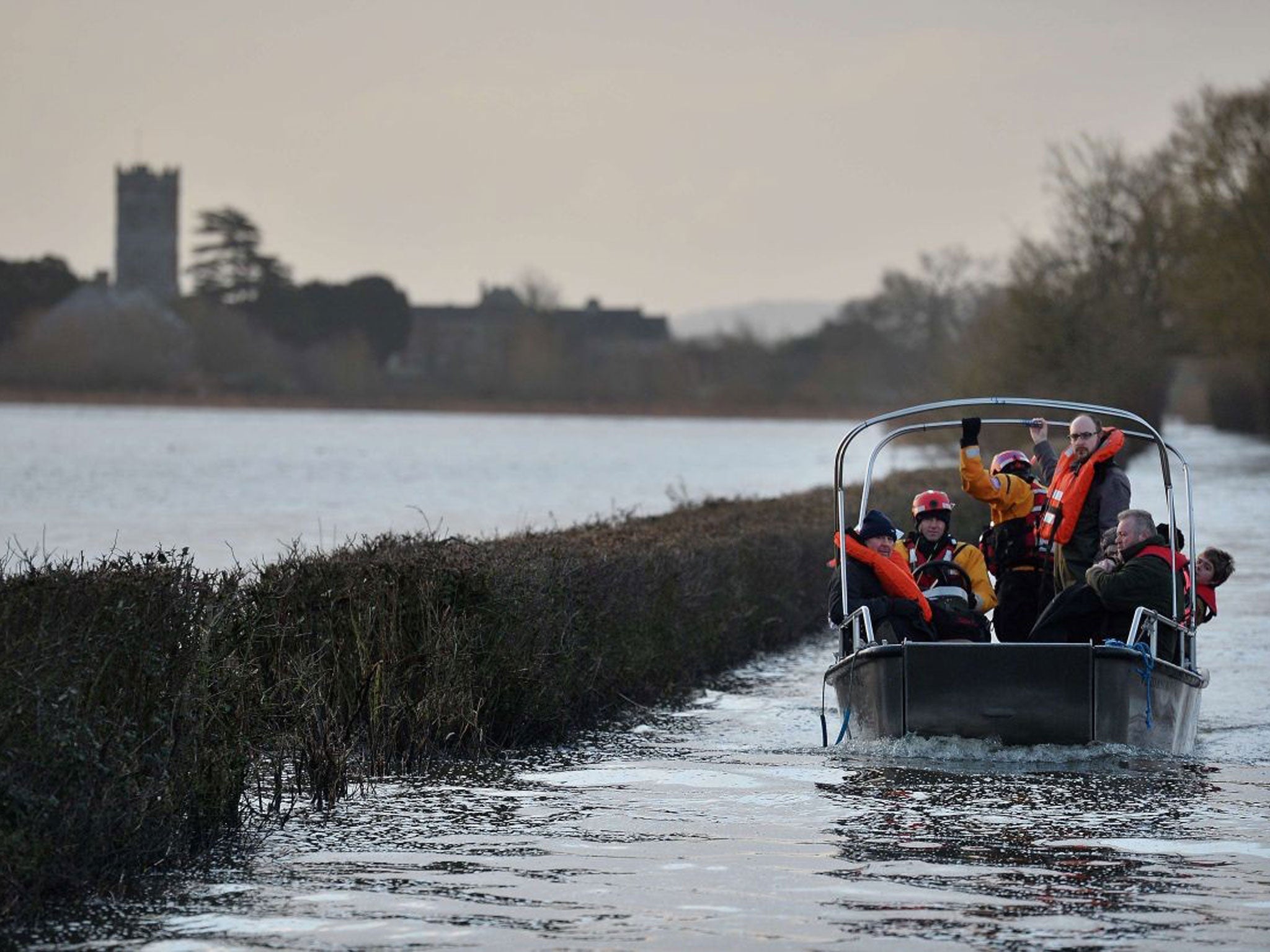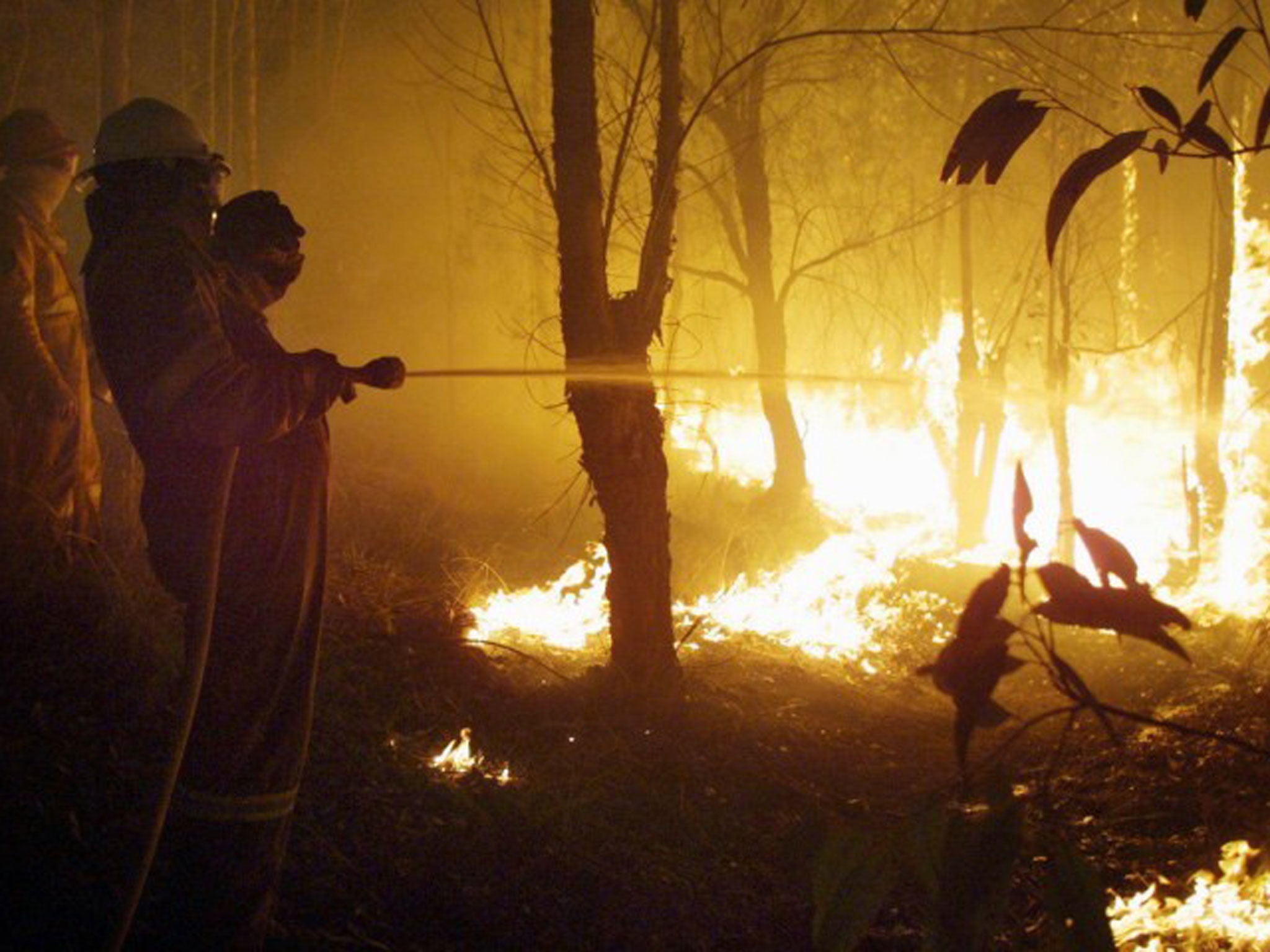Prince Charles is right about climate change
Ignoring global warming and its causes is a comforting path for politicians paralysed by self-interest and the consolations of denial


The old man who used to live next door was almost 80 and still smoking. His wife did not like it and made him take his ciggie outside. We would chat over the back fence if I was in the garden. "It's a rum do," Mr T would say, "Smoked all my life. Never did me any harm. My old ma lived till she was 92 and she was a smoker too."
We choose the evidence which suits us. The facts on smoking are overwhelmingly clear to scientists and statisticians. But anecdotes and exceptions can provide a handy excuse to ignore the facts when it suits. Denial is a classic human fallibility.
So what is the story with the current extreme weather? We have Met Office warnings of gales and floods bad enough to endanger human life. The Somerset Levels have been under water for weeks. California yesterday announced that its drought is so bad it has run out of water for rural areas, while north America has been gripped by a polar vortex, which has sent temperatures plunging to minus-50C. There are bush fires in Australia and floods in New Zealand. The Amazon has had two once-in-a-century droughts since 2005; Bangladesh has had two once-in-a-lifetime major cyclones in three years. The Philippines has had its worst-ever typhoon.
Climate change is the elephant in the room. In the face of all this "global weirding", as one climatologist calls it, discussion on what we are going to do about global warming is notably absent.
Weather is a freaky business. Always has been. You cannot link a single unusual weather event to climate change, we are constantly told by professional weathermen and climate change deniers alike. There is no provable causal link.
True. But nor is there a causal link between one of Mr T's individual roll-ups and the emphysema from which he eventually died. Yet the connection between smoking and pulmonary disease, cancer and heart disease is overwhelming. The parallel with our climate is inescapable: you can't link climate change to individual weather events, but you can link it to extreme weather trends. Unless you are one of the climate change deniers, whom Prince Charles last week called "the headless chicken brigade".

Denial has many roots. It offers the opportunity to exercise hobby-horses, like the Tories who see the flooded Somerset Levels as the fault of the worst kind of quango (the body which diverted cash from dredging into building a new nature reserve). It offers men of "common sense" the chance to mock the earnest killjoys who want to stop them flying off for cheap city breaks on untaxed air fuel. It offers endless opportunities for deniers to parade their little learning: how can there be global warming when some of the freak weather is making us colder? And what delicious irony there is in scientists getting stuck in ice on an expedition to measure how much that ice is melting. Except that, as any fule kno, sea ice is not fixed and gets blown about the ocean by the wind.
Some of this is scientific illiteracy. Warm air holds more water vapour than cold air. So as the air temperature rises, heavy snow will initially increase as the planet warms. Warmer air will also destabilise the whirlwind of cold, dense air at the poles, so the polar vortex wobbles southwards, like a drunk on his fourth Martini, as a climatologist memorably put it.
Some of it is an inability to set in proper context the blizzard of information with which the media blasts a public that prefers reading about the bizarre rather than the representative. There are a fair few wobbly assertions in Alain de Botton's new book The News: A User's Manual but he is correct in his baseline assertion that too many decontextualised facts are as unhelpful as no facts at all.
A popular philosopher might look more productively at how consumerist materialism has come to alter social time frames. Some three decades ago, a revolution in attitudes to credit occurred. Where Margaret Thatcher's parents' generation saw "living on tick" as seedy and shameful, their children were offered credit cards which would "Take the Waiting out of Wanting". With the death of deferred gratification came a new disregard for the future. The devaluation of pensions by irresponsible bankers has only boosted short-term hedonism.
The limited political horizons of our politicians do not help. They have long been reluctant to take hard decisions which will bear fruit only after they have left office; electoral strategy routinely trumps responsible management of the economy. Climate change is even more problematic for them, because it requires transnational as well as intergenerational vision.
All that is the antithesis of the modern political agenda. It is, then, a double irony that the problem receives its most vehement articulation from the unelected heir to a monarchy many deride as outdated and lacking political authority. Why, Prince Charles asks, do we "accept what science tells us about everything – until it comes to climate science", when "a barrage of sheer intimidation" insists "we must abandon all our faith in so much overwhelming scientific evidence". In practice the Prince, like the House of Lords, offers a useful practical long-term antidote to the short-term posturing of elected politicians.
The Prime Minister, David Cameron, this week conceded that he "strongly suspects" the abnormal weather is caused by man-made climate change. Yet the PM has appointed a climate sceptic, Owen Paterson, as the Environment and Agriculture Secretary who is charged with preparing, or adapting, Britain for global warming. He is the man who must now co-ordinate the change in farming practices that the National Farmers' Union yesterday conceded is needed to reduce the impact of climate change.
Yet, Mr Paterson, the man dubbed "the fool of the floods", is overseeing a 41 per cent decline in spending on domestic climate change initiatives this financial year, a Freedom of Information request has disclosed.
It is indeed, as Mr T was wont to opine across the garden fence, a rum do.
Paul Vallely is visiting professor of Public Ethics at the University of Chester

Join our commenting forum
Join thought-provoking conversations, follow other Independent readers and see their replies